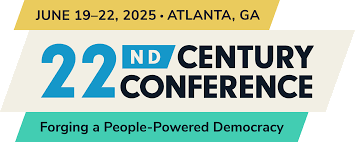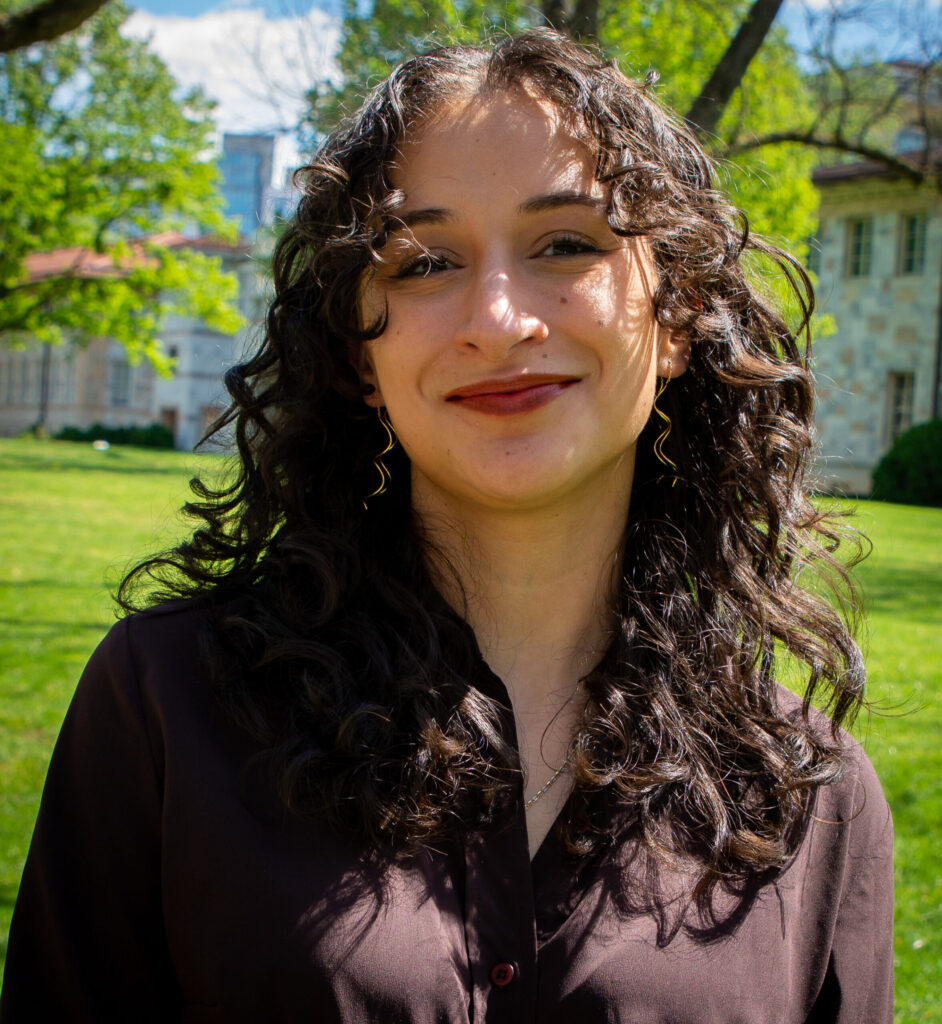
Tell us about yourself:
I’m Mariana Rocha, a PhD candidate in Neuroscience at Emory University in Atlanta, Georgia. My research investigates the biological pathways linking traumatic stress to pregnancy-related cardiometabolic complications, such as preeclampsia, with a focus on Black pregnant individuals. My work sits at the intersection of neuroscience, public health, and bioethics. I am also a member and social media volunteer with ESAL.
What is important to you about engaging with your local government?
Engaging with local government is important to me because I believe our communities are ultimately what keep us safe. As a scientist and advocate, I see local civic engagement as an opportunity to use my training to help build more equitable systems, while also showing up for those around me.
What did you do:
I attended The 22nd Century Conference: Forging a People-Powered Democracy in Atlanta, Georgia.
How did you identify and take advantage of the opportunity?

I learned about the conference through ESAL’s Executive Director. I was excited to attend because it brought together organizations and individuals from diverse interest areas to collaborate and share strategies for advancing pro-democracy and resisting authoritarianism. As scientists, we have often excluded ourselves from political conversations. The ongoing attacks on research, however, have made it clear that science is anything but apolitical. I saw this conference as a perfect opportunity to listen, learn and build connections with groups who have been organizing for decades.
What happened?
This three-day conference attracted more than 1,200 individuals. It opened with a powerful plenary where elders from the Civil Rights Movement imparted wisdom to both young and seasoned organizers. The speakers emphasized the importance of having intergenerational conversations about current and past issues in order to meet the challenges we face today.
What made this conference especially unique were the strategy and skill-building workshops, built around resisting authoritarian actions. Although most of the organizing groups were not STEM-based organizations, I could easily envision the important role scientists and engineers could play in this work.
For instance, I attended a strategy session focused on pregnancy criminalization: the arrest, prosecution or punishment of individuals for actions or outcomes related to their pregnancy. Central to this issue is the concept of “fetal personhood,” which grants legal rights to fetuses, fertilized eggs, and embryos. This framework can lead to extreme consequences, such as charging a pregnant person struggling with substance use with child abuse or neglect.
As a neuroscientist, I know that addiction fundamentally alters brain circuitry, making abrupt stop to substance use an unrealistic and unsafe expectation, whether a person is pregnant or not. Scientists have the ability and responsibility to help policymakers understand that criminalizing substance use during pregnancy deters individuals from seeking evidence-based care and ultimately endangers the health of both the pregnant person and the fetus.
This session was just one example of how the conference created opportunities to build skills and relationships for local civic engagement. Other sessions I attended included workshops on combating voter suppression, supporting rural participation in mutual aid networks, and using art as a tool for organizing around justice. Each session offered skills and action items for building a people-powered democracy and highlighted the importance of cross-sector collaboration, including the valuable contributions scientists and engineers can make in their communities.
What did you get out of this experience:
I left this conference feeling inspired and energized. Entering this space as a beginner allowed me to act as a sponge and absorb insights from organizers across a wide range of movements, including labor, climate justice, and LGBTQIA+ rights. In every workshop, I felt welcomed and encouraged and I could clearly see opportunities for scientists and engineers to contribute their talents.
This experience affirmed for me that our work as scientists and engineers has real-world implications, and that as experts we have a responsibility to ensure our research is not misused to justify harmful policies and practices. It also expanded my understanding of what civic engagement can look like, from formal government settings to mutual aid.
Attending The 22nd Century Conference: Forging a People-Powered Democracy reignited my commitment to advocating for more just reproductive and pregnancy-related health policies through my research, and gave me ideas for helping other scientists and engineers identify local civic efforts where their skills can make a positive impact.